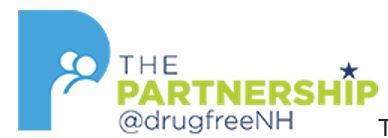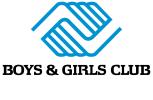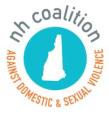Substance Misuse Prevention Services
Information and resources available that support substance misuse prevention in New Hampshire.
One of the goals of DHHS Bureau of Drug & Alcohol Services (BDAS) Prevention Services Unit is to prevent the onset and reduce the progression of substance misuse across all age groups, including underage drinking and the misuse of alcohol and/or other drugs, and to reduce the negative consequences of substance misuse for individuals, families, and communities.
Prevention in New Hampshire includes population level prevention and community-based prevention. Population level prevention targets the whole population of New Hampshire such as a mass media campaign or passage of legislation.
Community-based prevention is targeted to focus on individuals and their families such as school-based prevention education or youth programs. This well-rounded approach to prevention is designed to create a healthy state, communities, individuals and families.
School Based Programming
BDAS funds high need communities to implement Student Assistance Programs at middle and high schools and institutions of higher education across NH. These services follow the model of Project SUCCESS. This model includes individual student screenings , individual and group support services, substance misuse education, and parent education. The Prevention Services Unit works with other state agencies to advance prevention in NH including the Department of Education, Office of Social and Emotional Wellness, the National Guard Counter Drug Task Force, NH Department of Health and Human Services Bureau of Child and Maternal Health and the Division of Liquor Enforcement.
For more information, visit the Student Assistance Program page.
Community Based Programming
For young adults, aged 18-25, alcohol and substance misuse, can have devastating consequences including, injury, accidents, health problems, sleep disturbances, and other mental and physical health impacts. For some, the pattern of substance misuse in young adulthood may lead to more problematic use and progress to the development of one or more substance use disorder. BDAS delivers evidence-informed substance misuse prevention programs, for young adults entering or currently in the workforce who are between 18 and 25 years of age in order to mitigate risk factors associated with substance misuse by promoting positive protective factors. These efforts are informed by the Voice of NH’s Young Adults Needs Assessment.
Older Adult Services
Referral Education Assistance & Prevention (REAP) provides community-based, short-term support for older adults who live in New Hampshire, caregivers and family members of older adults, and professionals who work with and for older adults.
Certified Prevention Specialist certification
A strong prevention system needs a strong workforce. The purpose of prevention certification is to recognize and ensure that prevention workers meet competency standards made by the International Certification and Reciprocity Consortium (IC&RC) and the New Hampshire Prevention Certification Board. For more information on the standards set for prevention workers:
Regional Public Health Networks (RPHNs) and Advisory Councils
The purpose of the RPHNs is to bring substance misuse prevention, public health initiatives, and services into a common network. The RPHNs serve every community in the state and every RPHN has a Public Health Advisory Council Substance Misuse Prevention Coordinator. One of the tasks that is done by the Public Health Advisory Council is to do a Community Health Improvement Plan every few years. For more information about RPHNs, Public Health Advisory Councils (PHACs), or to find your regional Community Health Improvement Plan (CHIP) visit the Regional Public Health Networks page.
The Youth Risk Behavior Surveillance Survey
The Youth Risk Behavior Surveillance Survey (YRBS) is a national survey, conducted by the Centers for Disease Control and Prevention (CDC) every two years among representative samples of 9th through 12th grade students.
The YRBS monitors six types of health-related behaviors that contribute to the leading causes of death and disability among youth and adults, including:
- Behaviors that contribute to unintentional injuries and violence
- Sexual behaviors that contribute to unintended pregnancy and sexually transmitted diseases, including HIV infection
- Alcohol and other drug use
- Tobacco use
- Unhealthy dietary behaviors
- Inadequate physical activity
Information on this survey is valuable for the schools and community organizations to create program made for the needs of the community. For more information on the YRBS, see the YRBS Page
YRBS Survey Resources:
Prevention Programs Serving Youth & Families

The Partnership @drugfreeNH
The Partnership @drugfreeNH
The Partnership is a public-private collaboration between the NH Department of Health and Human Services, the NH Governor’s Commission on Alcohol & Other Drugs, the NH Charitable Foundation, and the NH Center for Excellence/JSI.
The Partnership envisions a New Hampshire where individuals have the information and skills they need to make and support positive, healthy decisions around the use of alcohol, tobacco and other drugs. Together we can help the individuals, families, and communities of NH to get informed and get help when they need it.












